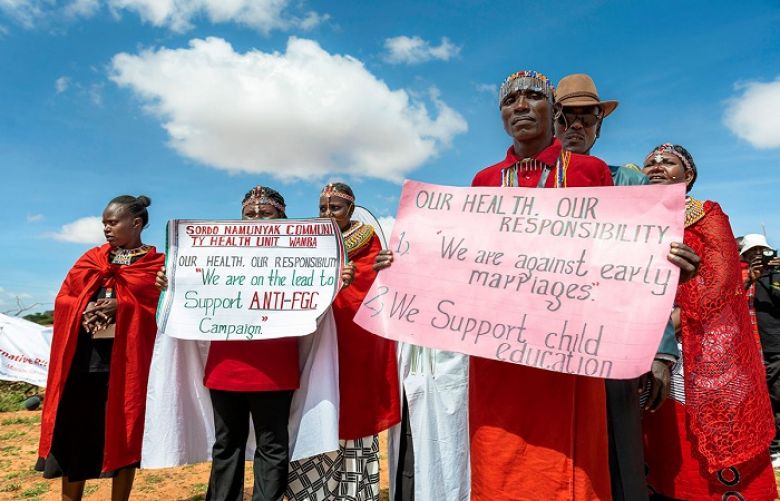Girls in colourful dresses dance and sing while holding candles that light up their smiling faces. "Extinguish the light of [FGM]. Kindle the light of education," they sing as they lift their candles. These girls of a Maasai community in Magadi, southern Kenya, are entering their adult lives through a new ceremony designed to abandon a tradition that has injured so many before.
Although female genital mutilation (FGM) has been outlawed in Kenya since 2001, a majority of girls of semi-nomadic tribes like the Maasai and Samburu still undergo this painful and damaging ritual.
According to the Kenya Demographic Household Survey of 2014, some 78 percent of Maasai women and 86 percent of Samburu women between the ages of 15 and 49, have been mutilated, while for Kenya's general population the figure for FGM stands at 21 percent.
Nine years ago, the NGO Amref Health Africa started training peer trainers among all age groups in Maasai and Samburu communities - elders, young men, mothers, and young girls - on the consequences of FGM. Together with several communities, the organisation developed the strategy called an Alternative Rite of Passage and now already more than 13,300 Maasai and Samburu girls have avoided FGM.
"In the beginning we faced a lot of resistance," Peter Nguura, project manager of Amref Health Africa, told Al Jazeera.
"But step by step, and starting with the engagement of the cultural elders as the key decision makers in the communities, we managed to create a conducive atmosphere of trust and confidence to discuss these culturally sensitive issues and meaningful and fruitful dialogue is now going on led by the community leaders themselves."
Alice, 63, did not want to be part of the training in the beginning. She, as a traditional cutter, was proud to be the one to help girls to become a woman. "'Who are you to change our culture?' were my first thoughts," she told Al Jazeera.
"But I changed my mind after I learned that FGM can cause serious medical problems that can even be life threatening."

